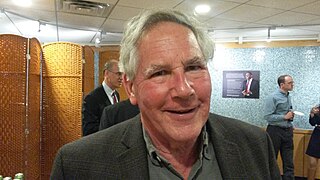Related Research Articles

Speciesism is a term used in philosophy regarding the treatment of individuals of different species. The term has several different definitions within the relevant literature. Some sources specifically define speciesism as discrimination or unjustified treatment based on an individual's species membership, while other sources define it as differential treatment without regard to whether the treatment is justified or not. Richard Ryder, who coined the term, defined it as "a prejudice or attitude of bias in favour of the interests of members of one's own species and against those of members of other species." Speciesism results in the belief that humans have the right to use non-human animals, which scholars say is pervasive in the modern society. Studies from 2015 and 2019 suggest that people who support animal exploitation also tend to endorse racist, sexist, and other prejudicial views, which furthers the beliefs in human supremacy and group dominance to justify systems of inequality and oppression.

Informed consent is a principle in medical ethics, medical law and media studies, that a patient must have sufficient information and understanding before making decisions about their medical care. Pertinent information may include risks and benefits of treatments, alternative treatments, the patient's role in treatment, and their right to refuse treatment. In most systems, healthcare providers have a legal and ethical responsibility to ensure that a patient's consent is informed. This principle applies more broadly than healthcare intervention, for example to conduct research and to disclose a person's medical information.
Bioethics is both a field of study and professional practice, interested in ethical issues related to health, including those emerging from advances in biology, medicine, and technologies. It proposes the discussion about moral discernment in society and it is often related to medical policy and practice, but also to broader questions as environment, well-being and public health. Bioethics is concerned with the ethical questions that arise in the relationships among life sciences, biotechnology, medicine, politics, law, theology and philosophy. It includes the study of values relating to primary care, other branches of medicine, ethical education in science, animal, and environmental ethics, and public health.
In philosophy and neuroscience, neuroethics is the study of both the ethics of neuroscience and the neuroscience of ethics. The ethics of neuroscience concerns the ethical, legal and social impact of neuroscience, including the ways in which neurotechnology can be used to predict or alter human behavior and "the implications of our mechanistic understanding of brain function for society... integrating neuroscientific knowledge with ethical and social thought".
Robert Joseph White was an American neurosurgeon best known for his head transplants on living monkeys.
Evolutionary ethics is a field of inquiry that explores how evolutionary theory might bear on our understanding of ethics or morality. The range of issues investigated by evolutionary ethics is quite broad. Supporters of evolutionary ethics have claimed that it has important implications in the fields of descriptive ethics, normative ethics, and metaethics.

The Hastings Center is an independent, nonpartisan bioethics research institute and think tank based in Garrison, New York. It was instrumental in establishing the field of bioethics and is among the most prestigious bioethics and health policy institutes in the world.

Arthur Schafer is a Canadian ethicist specializing in bioethics, philosophy of law, social philosophy and political philosophy. He is Director of the Centre for Professional and Applied Ethics, at the University of Manitoba. He is also a full professor in the Department of Philosophy and an ethics consultant for the Department of Paediatrics and Child Health at the Health Sciences Centre in Winnipeg. For ten years he was head of the Section of Bio-Medical Ethics in the Faculty of Medicine of the University of Manitoba. He has also served as visiting scholar at Green College, Oxford.

Bernard Elliot Rollin was an American philosopher, who was emeritus professor of philosophy, animal sciences, and biomedical sciences at Colorado State University. He was considered to be the "father of veterinary medical ethics".
Animal ethics is a branch of ethics which examines human-animal relationships, the moral consideration of animals and how nonhuman animals ought to be treated. The subject matter includes animal rights, animal welfare, animal law, speciesism, animal cognition, wildlife conservation, wild animal suffering, the moral status of nonhuman animals, the concept of nonhuman personhood, human exceptionalism, the history of animal use, and theories of justice. Several different theoretical approaches have been proposed to examine this field, in accordance with the different theories currently defended in moral and political philosophy. There is no theory which is completely accepted due to the differing understandings of what is meant by the term ethics; however, there are theories that are more widely accepted by society such as animal rights and utilitarianism.

The philosophy of healthcare is the study of the ethics, processes, and people which constitute the maintenance of health for human beings. For the most part, however, the philosophy of healthcare is best approached as an indelible component of human social structures. That is, the societal institution of healthcare can be seen as a necessary phenomenon of human civilization whereby an individual continually seeks to improve, mend, and alter the overall nature and quality of their life. This perennial concern is especially prominent in modern political liberalism, wherein health has been understood as the foundational good necessary for public life.

Public Responsibility in Medicine and Research (PRIM&R) is a 501(c)(3) nonprofit organization based in Boston, Massachusetts. The organization was formed in 1974 by a group of researchers who sought to ensure that the concerns and experiences of those working in biomedical research would be reflected in the growing body of federal regulations governing the field.

Daniel Isaac Wikler is an American public health educator, philosopher, and medical ethicist. He is currently the Mary B. Saltonstall Professor of Population Ethics and Professor of Ethics and Population Health in the Department of Global Health and Population of the Harvard T.H. Chan School of Public Health in Boston. He is Director and a core faculty member in the Harvard Program in Ethics and Health (PEH). His current research interests are ethical issues in population and international health, including the allocation of health resources, health research involving human subjects, organ transplant ethics, and ethical dilemmas arising in public health practice, and he teaches several courses each year. He is a fellow of the Hastings Center, an independent bioethics research institution.

Norman Daniels is an American political philosopher and philosopher of science, political theorist, ethicist, and bioethicist at Harvard University and the Harvard T.H. Chan School of Public Health. Before his career at Harvard, Daniels had built his career as a medical ethicist at Tufts University in Medford, Massachusetts, and at Tufts University School of Medicine, also in Boston. He also developed the concept of accountability for reasonableness with James Sabin, an ethics framework used to challenge the healthcare resource allocation in the 1990s.
Human subject research legislation in the United States can be traced to the early 20th century. Human subject research in the United States was mostly unregulated until the 20th century, as it was throughout the world, until the establishment of various governmental and professional regulations and codes of ethics. Notable – and in some cases, notorious – human subject experiments performed in the US include the Tuskegee syphilis experiment, human radiation experiments, the Milgram obedience experiment and Stanford prison experiments and Project MKULTRA. With growing public awareness of such experimentation, and the evolution of professional ethical standards, such research became regulated by various legislation, most notably, those that introduced and then empowered the institutional review boards.

Political Animals and Animal Politics is a 2014 edited collection published by Palgrave Macmillan and edited by the green political theorists Marcel Wissenburg and David Schlosberg. The work addresses the emergence of academic animal ethics informed by political philosophy as opposed to moral philosophy. It was the first edited collection to be published on the topic, and the first book-length attempt to explore the breadth and boundaries of the literature. As well as a substantial introduction by the editors, it features ten sole-authored chapters split over three parts, respectively concerning institutional change for animals, the relationship between animal ethics and ecologism, and real-world laws made for the benefit of animals. The book's contributors were Wissenburg, Schlosberg, Manuel Arias-Maldonado, Chad Flanders, Christie Smith, Clemens Driessen, Simon Otjes, Kurtis Boyer, Per-Anders Svärd, and Mihnea Tanasescu. The focus of their individual chapters varies, but recurring features include discussions of human exceptionalism, exploration of ways that animal issues are or could be present in political discourse, and reflections on the relationship between theory and practice in politics.
Clare Palmer is a British philosopher, theologian and scholar of environmental and religious studies. She is known for her work on environmental and animal ethics. She was appointed as a professor in the Department of Philosophy at Texas A&M University in 2010. She had previously held academic appointments at the Universities of Greenwich, Stirling, and Lancaster in the United Kingdom, and Washington University in St. Louis in the United States, among others.
Margaret Pabst Battin, also known as Peggy Battin, is an American philosopher, medical ethicist, author, and a current distinguished professor at the University of Utah. She is a supporter of assisted suicide and has worked extensively on ethical aspects of this issue. In 1993, she was named a Spinoza Chair at the University of Amsterdam for her studies on assisted suicide. Battin is a Hastings Center Fellow. In 2008, Battin's husband became quadriplegic after a bicycle accident, which caused her to refine and augment her thinking about assisted suicide; he died in 2013 after he requested to turn off his life support.

Christine I. Mitchell is an American filmmaker and bioethicist and until her retirement in September 2022, the executive director of the Center for Bioethics at Harvard Medical School (HMS).
Clair Susan Linzey is a British theologian and ethicist, editor and writer. She is the Frances Power Cobbe Professor of Animal Theology at the Graduate Theological Foundation, Deputy Director of the Oxford Centre for Animal Ethics and the director of their annual summer school, as well as a Research Fellow in Animal Ethics at Wycliffe Hall, Oxford. Linzey is also co-editor, with her father, of the Palgrave Macmillan Animal Ethics Series and the Journal of Animal Ethics. She specialises in animal theology, animal ethics, environmental ethics, systematic theology, feminist theology and Christian moral thought.
References
- 1 2 "Rebecca Dresser". Washington University in St. Louis School of Law. Retrieved 26 June 2022.
- ↑ "Rebecca S. Dresser, JD, MS". Washington University in St. Louis Institute for Public Health. Retrieved 26 June 2022.
- ↑ "Rebecca S. Dresser". Safra Center for Ethics. Retrieved 26 June 2022.
- ↑ Fox, Timothy (2 March 2012). "Medical ethicists confront cancer in new book". The Source. Washington University in St. Louis. Retrieved 26 June 2022.
- ↑ Reviews of The Human Use of Animals include:
- Rowan, Andrew N. (1999). "Book review of The Human Use of Animals: Case Studies in Ethical Choice". Journal of Applied Animal Welfare Science. 2 (2): 151–153. doi:10.1207/s15327604jaws0202_8.
- Halder, Marlies (2002). "Book Review: The Human Use of Animals: Case Studies in Ethical Choice". Alternatives to Laboratory Animals. 30 (3): 352. doi: 10.1177/026119290203000315 . S2CID 145863405.
- Sprigge, T. L. S. (1999). "The Human Use of Animals: Case Studies in Ethical Choice". Journal of Medical Ethics. 25 (5): 422. doi:10.1136/jme.25.5.422. PMC 479275 .
- ↑ Sugarman, Jeremy (November–December 2001). "When Science Offers Salvation: Patient Advocacy and Research Ethics. (Review: taking a hard look at advocacy in research)". The Hastings Center Report. 31 (6).
- ↑ Mishra, Ruchika (2013). "Review of Rebecca Dresser, ed., Malignant: Medical Ethicists Confront Cancer". The American Journal of Bioethics. 13 (3): 51–52. doi:10.1080/15265161.2013.760985. S2CID 70904547.
- ↑ King, Nancy M. P. (September–October 2017). "Review: Speaking about Silence: The Need to Hear from Research Subjects". IRB: Ethics & Human Research. 39 (5): 19–20. JSTOR 26776040.